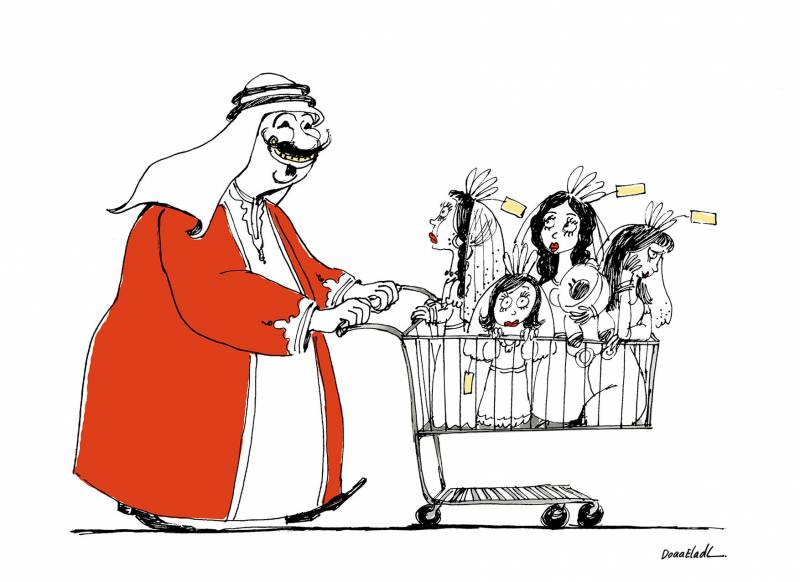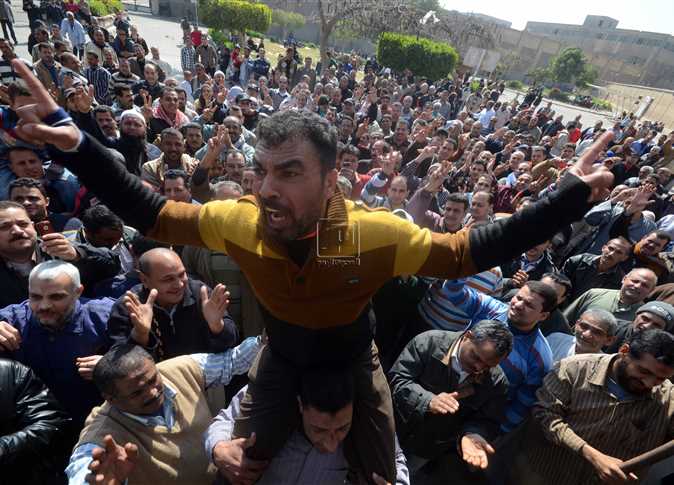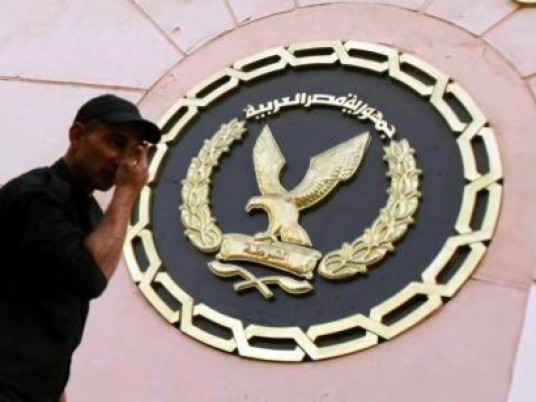Fuel is in short supply in El-Mahalla El-Kubra. So is patience.
Egyptian riot police marshal motorists who can spend much of the day in line. While some drivers blame each other and fights are common, most in the industrial city agree on the underlying cause: President Mohamed Morsy.
"The situation has been terrible since the moment Morsy took power," said Mohamed Ismail, 58, who had been waiting for 7 hours to fill his truck with diesel. "May God destroy his house," chips in a passer-by – a refrain heard repeatedly in chaotic scenes that have become a feature of daily life.
Long one of Egypt's most restive cities, Mahalla is tense once again. Its disgruntled residents cite energy shortages, economic stagnation, broken promises and lax security as reasons why the Muslim Brotherhood president must be removed from power by demonstrations which are to build up from Friday to the main day of protest on Sunday.
One year into Morsy's term, some of the complaints might sound familiar to democratically elected leaders elsewhere. But this is Egypt, and Mursi faces an additional challenge: the revolutionary spirit still simmering nearly two and half years after Hosni Mubarak was ousted.
That is putting Morsy, his Islamist backers and the influential military on edge. The army, trying to stay neutral, has called for the rival political camps to reach a consensus, warning it will intervene if conflict ensues.
Outsiders, including the United States which helps fund the military in this pivotal Arab state, are looking on warily.
In Mahalla, where protesters defied Mubarak repeatedly in the years leading to the 2011 uprising, workers and activists appear confident that these are Morsy's last days in office.
"We will go out every day until we remove him," said Jihan Melawi, 29, one of several hundred workers who streamed out of the city's biggest textile factory on Tuesday to march against Morsy. "Out! Out! Out!" they chanted.
Anger has spilled into violence. The entrance to the Muslim Brotherhood's local party office was firebombed this week.
The grievances go beyond the economy. Morsy's decision to appoint a member of his group as the provincial governor set off clashes in which a dozen people were injured. The complaint was that this was part of a Brotherhood grab for permanent power.
The Brotherhood, a banned group at the time of the 2011 uprising, derides talk of a looming revolution. Calls for a mass rally to unseat Morsy have a familiar ring. "This will be the 25th, and it will not be the last," said Mamdouh al-Muneir, a spokesman for the movement's Freedom and Justice Party.
The fuel station queue of 100 vehicles that snakes past his office is caused by corruption, he says. The state allocates more than enough fuel to the city, but heavily subsidized diesel and gasoline are being diverted and sold into the black market.
"It is all a conspiracy to create a crisis," he said, blaming the racket on "feloul," a pejorative word for Mubarak loyalists. Feeling ever more embattled, the Brotherhood has started applying the term widely to its opponents.
Muneir listed other problems too: inaction by a police force unwilling to help restore law and order, and what he described as sabotage by some state officials: "Most citizens understand that the challenges need time," he said.
Mahalla, which lies in the Nile Delta north of Cairo, had long been a stronghold of Brotherhood support. Morsy launched his presidential election campaign from the city's sports stadium last year. But afterwards more local residents voted for Mubarak's last prime minister, Ahmed Shafik, than for Morsy, pointing to the group's faltering political fortunes.
Many of the problems afflicting Egyptians – fuel shortages and lax policing, for example – were a feature of the 18 months of army-led rule before Morsy's election. But today, the focus is on the Brotherhood's failure to fix them.
"We had hope, but now I regret voting for them because of the promises that were not met," said Ahmed Helmi, 38, a worker at a Mahalla textile factory. "We will go out on June 30 to find a solution for this farce. The first priorities are income and security: we can't go out without fear of getting mugged."
The factory where he works, which makes towels for export, is suffering from the energy shortages that are hitting the economy more widely. Its owner, Ezzat al-Qalini, grumbles that he can't get enough diesel to run his dyeing machines, while power cuts are hitting output and undoing any good that might have come from the Egyptian pound's collapse to a record low.
He proudly showed off a stairwell covered with anti-Brotherhood graffiti. He is planning to give his 150 employees paid leave to take part in the protests come Sunday.
"We are going out and we will remove Morsy," said Qalini, who voted for Shafik, a retired general, in last year's election.
Textile firms are among Egypt's biggest industrial employers, yet more than 50 percent of their capacity is idle, said Ahmed al-Sharawi, an industry leader from Mahalla, where around half a million people work in the sector.
Output has suffered because of uncontrolled smuggling from Libya, he said, faulting the Morsy government's failure to confront the problem or produce any cogent policies to revive the sector: "They are amateurs, busy with things other than the economy," he said. "They're busy securing themselves in power."




